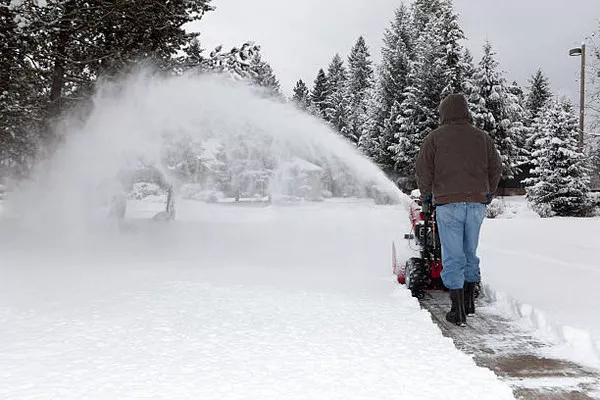As winter approaches and the snow begins to fall, homeowners and property managers are faced with the task of keeping their driveways and sidewalks clear. A snowblower is an essential tool for efficiently tackling this chore, but like any machine, it requires proper maintenance to ensure optimal performance and longevity. One critical aspect of snowblower maintenance is selecting the appropriate type of oil. In this article, we will delve into the importance of using the right oil for your snowblower and explore the various options available.
The Significance of Proper Snowblower Oil Selection
Snowblowers, whether they are single-stage or two-stage, gas-powered or electric, rely on a combustion engine or a motor to operate effectively. Just as a human body requires the right fuel for peak performance, engines also require specific types of oil to function optimally. The oil serves as a lubricant, reducing friction between moving parts and preventing excessive wear and tear. It also aids in heat dissipation, ensuring that the engine operates at a safe temperature.
Using the wrong type of oil can have detrimental effects on the snowblower’s performance and longevity. Insufficient lubrication can lead to increased friction and heat, potentially causing engine components to seize or wear out prematurely. On the other hand, using oil with inadequate heat resistance may lead to overheating, which can degrade the oil’s properties and impair the engine’s efficiency.
Understanding Oil Viscosity
One of the most critical factors to consider when choosing snowblower oil is viscosity. Viscosity refers to the oil’s resistance to flow and is usually measured using two numbers, such as 10W-30. The “W” stands for “winter,” and the number before it indicates the oil’s viscosity in cold temperatures, while the number after the “W” indicates viscosity at operating temperatures.
For most snowblowers, a multi-viscosity oil like 5W-30 or 10W-30 is recommended. These oils offer a balance between cold-start performance and high-temperature stability. The “W” rating ensures easy starting in cold weather, while the second number provides adequate protection at operating temperatures. However, always consult your snowblower’s manual for the manufacturer’s recommended oil viscosity.
Choosing Between Conventional and Synthetic Oils
Snowblower owners also have the choice between conventional and synthetic oils. Conventional oils are derived from crude oil and are more affordable, but they tend to break down more quickly under high temperatures and extreme conditions. Synthetic oils, on the other hand, are chemically engineered for superior performance and longevity. They offer better protection against engine wear, improved temperature stability, and reduced oil breakdown. While synthetic oils are pricier, their benefits in terms of engine health and longevity often justify the cost.
Considering Additives
Certain snowblower oils come with additives that offer additional benefits. For instance, some oils contain detergents that help keep the engine clean by preventing the buildup of deposits and sludge. Others may have anti-wear additives that provide extra protection to engine components, particularly during start-up when wear is most prominent. When choosing an oil, carefully review its additive package to ensure it aligns with your snowblower’s specific needs.
Following Manufacturer Recommendations
Undoubtedly, one of the most crucial steps in selecting the right oil for your snowblower is to follow the manufacturer’s recommendations. The owner’s manual will provide detailed information about the type of oil, viscosity rating, and any additives that are recommended for your specific snowblower model. Deviating from these guidelines could result in suboptimal performance, increased maintenance needs, and potential warranty issues.
Changing Oil Regularly
Equally important as selecting the right oil is changing it at regular intervals. Over time, oil can become contaminated with dirt, debris, and combustion byproducts, reducing its effectiveness as a lubricant. Regular oil changes ensure that the engine continues to operate smoothly and efficiently. Consult your owner’s manual for recommended oil change intervals, but as a general rule of thumb, changing the oil at the beginning of each winter season is a wise practice.
Conclusion
In conclusion, choosing the right type of oil for your snowblower is a crucial aspect of maintenance that directly impacts the machine’s performance and longevity. Proper lubrication and temperature stability are essential for preventing engine wear and ensuring efficient operation. Understanding factors such as viscosity, oil type (conventional vs. synthetic), and additives will help you make an informed decision. However, the manufacturer’s recommendations should always be your primary guide.
As the winter season approaches, take the time to review your snowblower’s owner’s manual, identify the recommended oil type and viscosity, and plan for regular oil changes. By adhering to these guidelines, you will be better equipped to keep your snowblower running smoothly and efficiently, allowing you to tackle even the heaviest snowfalls with confidence and ease.

